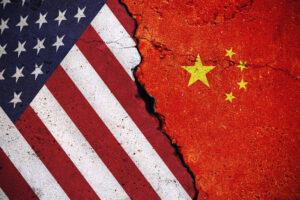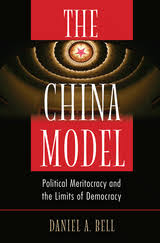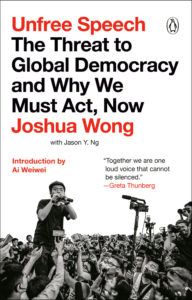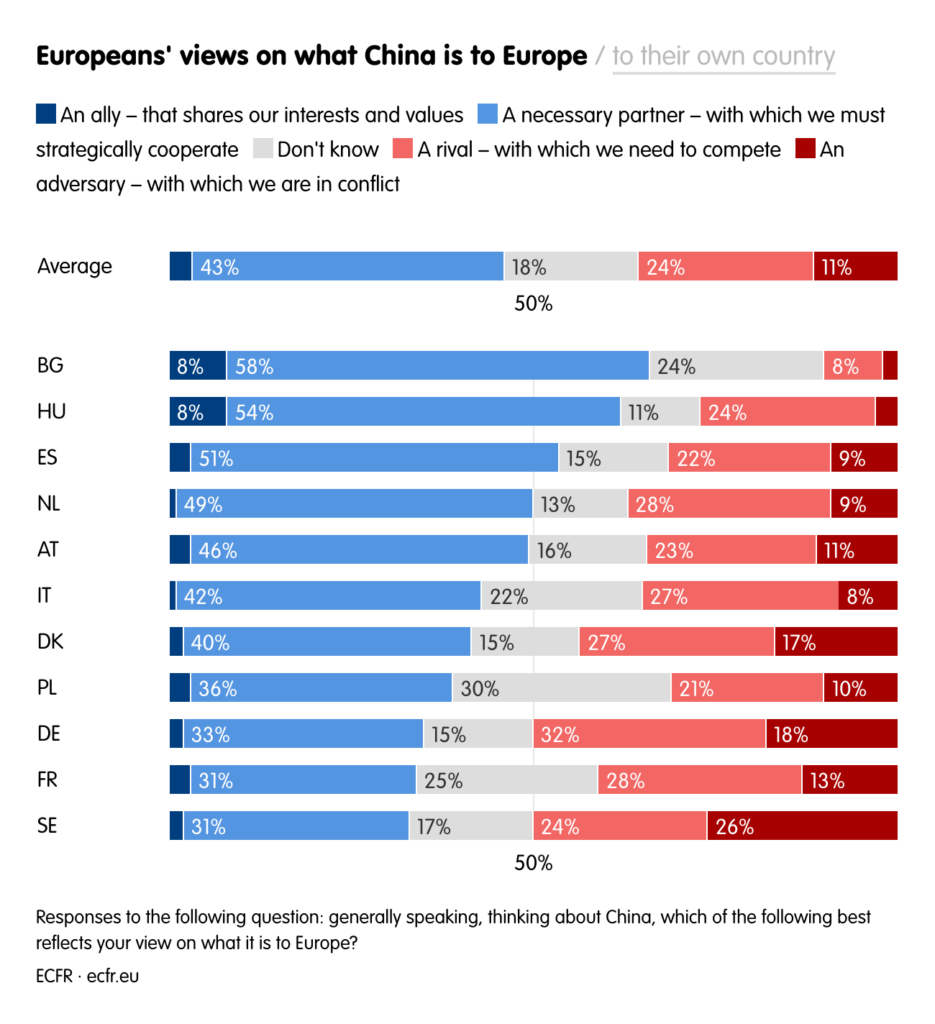China has reportedly reached an agreement with Cuba to host an electronic eavesdropping facility on the island nation, which is roughly 100 miles from the coast of Florida, in what would be the closest foreign adversary military base to the U.S. mainland. The Wall Street Journal reported Thursday that China has agreed to pay Cuba several billion dollars to build the facility.

Credit: Front Line Defenders
China jailed a human rights lawyer for three and a half years for state subversion, his family said Thursday, in the latest blow to the country’s embattled civil society under President Xi Jinping. Chang Weiping (right) was sentenced by a court in northwestern China’s Shaanxi province, his wife Chen Zijuan confirmed to AFP:
Known for defending the rights of workers, women and religious and sexual minorities, Chang was seized by authorities in 2020 after releasing a video alleging that he had been tortured during a previous detention. He is an associate of two other rights lawyers who were jailed in April for the same crime following closed-door trials. Xu Zhiyong and fellow campaigner Ding Jiaxi were key figures in the New Citizens’ Movement, a civil rights group that called for constitutional reform and criticised government corruption.
The dream of a liberal, democratic China is decidedly dead, and U.S. policymakers are finally beginning to grapple with the reality of having an authoritarian adversary as a global peer, a new analysis asserts.
 The PRC… has made clear that it will use any tool at hand in its long-term struggle to displace the United States, from hacking federal personnel records to facilitating the flow of deadly fentanyl across our southern border. For the CCP, the conflict is a whole-of-society priority, demanding a level of state control and action that is barely conceivable to citizens of western democracies.
The PRC… has made clear that it will use any tool at hand in its long-term struggle to displace the United States, from hacking federal personnel records to facilitating the flow of deadly fentanyl across our southern border. For the CCP, the conflict is a whole-of-society priority, demanding a level of state control and action that is barely conceivable to citizens of western democracies.
“American theorists and policymakers never considered the implications of integration with an authoritarian peer,” the authors assert:
The China challenge is not only, or even primarily, one of national security. It is that too, to be sure. But the fundamental problem is that America’s free market economy is incompatible with China’s state-controlled one, and American liberty and democracy are incompatible with Chinese communism, American Compass asserts, adding that “subversion of American values is central to the CCP’s ideological program.”
 The CCP’s political and economic model poses a far greater threat to American democratic capitalism than does its two-million-man army, adds the report, A Hard Break From China:
The CCP’s political and economic model poses a far greater threat to American democratic capitalism than does its two-million-man army, adds the report, A Hard Break From China:
Markets also transmit authoritarianism. If American firms are tasked with maximizing their profits, and the greatest profit can be had by kowtowing to the CCP, that is what American business leaders will do……The CCP uses its economic leverage in financial markets and supply chains to corrupt American institutions and undermine democratic norms. Capitalism encourages whatever activities will produce the greatest profit and, in America’s current relationship with China, the pursuit of profit often calls for kowtowing to the CCP.
As American defense officials and China experts observed last year in Foreign Affairs, the CCP produced “weeks of propaganda and publications” around the celebration of Karl Marx’s 200th birthday to “establish Xi as the designated heir to Marx, Lenin, Stalin, and Mao.” In a speech later that year, Xi “exhorted CCP cadres to remember their duty to ‘liberate all of humanity’ and serve as the ‘gravediggers of capitalism.’” A textbook for the PLA explains, “Xi Jinping has emphasized that our state’s ideology and social system are fundamentally incompatible with the West.
 China’s detention of former foot soldiers in Hong Kong’s fight for greater democratic freedoms shows how the concept of deradicalization has been co-opted by authoritarian states, The Washington Post’s Shibani Mahtani writes:
China’s detention of former foot soldiers in Hong Kong’s fight for greater democratic freedoms shows how the concept of deradicalization has been co-opted by authoritarian states, The Washington Post’s Shibani Mahtani writes:
From the start of their detention, inmates are subject to Beijing’s narrative that the protests were a product of foreign manipulation, rather than an organic pro-democracy uprising. One former prisoner in a facility for adults said a guard, holding a checklist in his hands with several questions, asked him whether he had received funding to protest. Several others in juvenile prisons said guards also asked them if they had been paid.
“For democracy to happen, you need people to confront their government, to be angry … that is sometimes inconvenient, but it is not radicalization,” said Louis Audet Gosselin, the scientific and strategic director for the Center for the Prevention of Radicalization Leading to Violence, a Montreal-based nonprofit. “Imprisoning and brainwashing is not deradicalization.”
The European public displays a remarkable attachment to a values-based foreign policy, according to the findings of a European Council on Foreign Relations (ECFR) survey of more than 16,000 people across 11 E.U. member states. When asked about the EU’s role, the largest group of respondents think it should be a “beacon of democracy and human rights”. But Europeans do not buy into the “democracy vs autocracy” framework promoted by the Biden administration, say ECFR experts Jana Puglierin and Pawel Zerka.

The findings offer a stark contrast to the conventional view that there is a certain symmetry between what is happening in Ukraine and what could yet happen in Taiwan, TIME reports:
Both have had their sovereignty denied by more powerful, authoritarian neighbors in Russia and China, respectively. But….Whereas more Americans are likely to regard China as a competitor (52%) or enemy (38%), according to a recent study by the Pew Research Center, European attitudes toward China are more mixed. On average, 43% of Europeans view China as “a necessary partner” as opposed to 24% who see the country as a rival or 11% who see it as an adversary. This is despite the fact that a majority of Europeans recognize China as being a close partner to Russia, which a majority of Europeans regard as a rival or adversary to Europe.
New York Times columnist Nicholas Kristof rebuts the Chinese government’s effort to rewrite the history of the Tiananmen Massacre by detailing what he actually saw that terrible night of June 3-4, 1989. The Chinese democracy movement had been underway for seven weeks, attracting vast support for the students occupying Tiananmen Square, when the government sent an estimated 200,000 or more soldiers to invade the capital from several directions on the night of June 3, he writes:
My wife and fellow Times correspondent, Sheryl WuDunn, and I worked very hard to get the death toll at hospitals and morgues across Beijing, using every connection we had. Our estimate then, which we stand by, was 400 to 800 killed in the capital and several thousand injured.
What unfolded that night was not a battle but a slaughter, @nytimes‘s @NickKristof writes of #TiananmenSquare. The brutality is difficult to exaggerate. https://t.co/DMKIcPewe8
— Democracy Digest (@demdigest) June 8, 2023







